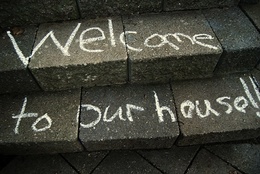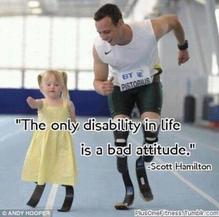
I want to talk about social change, anger, and “communicating hospitably.” By this last term I mean communicating in such a way that invites others in with generosity. While anger is important for developing a critical consciousness about stuttering, I recognize that it cannot be our only nor last response. We need to challenge ableist beliefs and structures in a way that invites people in rather than shutting everyone out. The trick, however, is not to think of anger and hospitality as polar opposites that simply cancel each other out. This is no doubt a complex problem, one that requires that we back up a couple steps to approach the issue from a better angle.
Consider first that social change is not simply about educating people. I’m not saying that education about stuttering isn’t important—after all, one of Did I Stutter’s main goals is re-education. What I am saying is that education by itself is never enough to create social change. The main reason for this is that our marginalized experience as stutterers is produced by a system of oppression—ableism. There are certainly people who will quickly change when they realize that the way they think about stuttering and relate to stutterers has been oppressive. Yet as the history of the disability rights movement teaches us, we can expect tremendous push-back against the kind of social justice Did I Stutter is seeking.
 "The only disability in life is a bad attitude."
"The only disability in life is a bad attitude." To create social change is thus not simply about educating people, since education in itself means we are dependent upon the kindness and generosity of others. You can ask people nicely not to finish your sentences and explain why it is infantilizing, but that leaves it up to their good will. As every liberation movement of the past century has shown, social change requires something more: a change in power dynamics that transforms the relations between people. In our context, this means transforming how abled people relate to disabled people (in ways that are less oppressive), how abled people relate to each other (in ways that disarm ableism and make space for disabled people), and how disabled people relate to each other (in ways that affirm solidarity). This is especially true for stuttering since, as I have suggested earlier, it is a distinctly interpersonal experience. Speaking on our own terms thus requires educating people as well as shifting the terms—shifting the power dynamics—on which we get to speak.
This brings me back to the issue of anger and communicating hospitably. Against our sometimes common-sense intuition, I believe that communication is not primarily the act of swapping information between our heads, but is a way of relating to and changing the relationships between one another. Communication connects us to each other, and depending on how we communicate, we can establish very different kinds of relationships between people.
However if communication is a way of relating to one another, it is also about power. It is no secret that we assert power over others through communication. We regularly change how people act and think about themselves and others through the way in which we communicate—not only what we say, but, for example, the underlying tone we use, the context in which we say it, and who is involved in the conversation.
So if communication is more about modifying how we relate to each other than simply exchanging information, and if we understand social change to require transforming the relationships between people rather than simply educating them, the importance of how we speak and write about stuttering with others takes on a new flavor.
I want to talk about communicating hospitably, and I want to use it in the place of words like “empathy,” “kindness,” “and “compassion.” These words so easily force marginalized people to be “respectable” and “civil” if they want to be taken seriously. In other words, we are forced to speak on the terms of ableism. Communicating hospitably is rather inviting others into our home, into our way of communicating, our speeds, our styles, our rhythms of communication. Communicating hospitably is, moreover, to communicate on our own terms and welcome others to explore this world with us. This means that yes, we need to make space for them and help them find their way within our world. But it does not mean that anger and hospitality are polar opposites, nor that anger not is not at times an appropriate response to how people treat us in our home. In communicating hospitably we are seeking to change the relationships between people, not just invite them in so we can funnel information into their ear.
If someone interrupts my sentence, I hospitably invite them into my communication by finishing my sentence anyway. If they continue to do so, a more direct—“why are you cutting me off?” may be appropriate. Many people will learn how to listen in less ableist ways with polite explanations or reminders. But if I have invited someone into my home, into my rhythms of speech, and they refuse to treat those rhythms respectably, I can’t simply assume it’s because I haven’t asked nicely enough. In this regard, there are times when people will still try and force us to speak on their own terms—make us feel ashamed or embarrassed of our stuttering—and thus recreate an oppressive relationship. It is especially in these times that getting angry is an appropriate way of resisting oppression. When this happens I love to look people straight in the eye as I stutter, my tongue protrudes, and syllables spill out of my mouth, daring them to either listen up or walk way.
Stuttering with hospitality means generously inviting people into my speeds and rhythms of speech. It also means that I refuse to speak on the terms of ableism. I refuse to make that kind of world my home.
-Josh
 RSS Feed
RSS Feed
